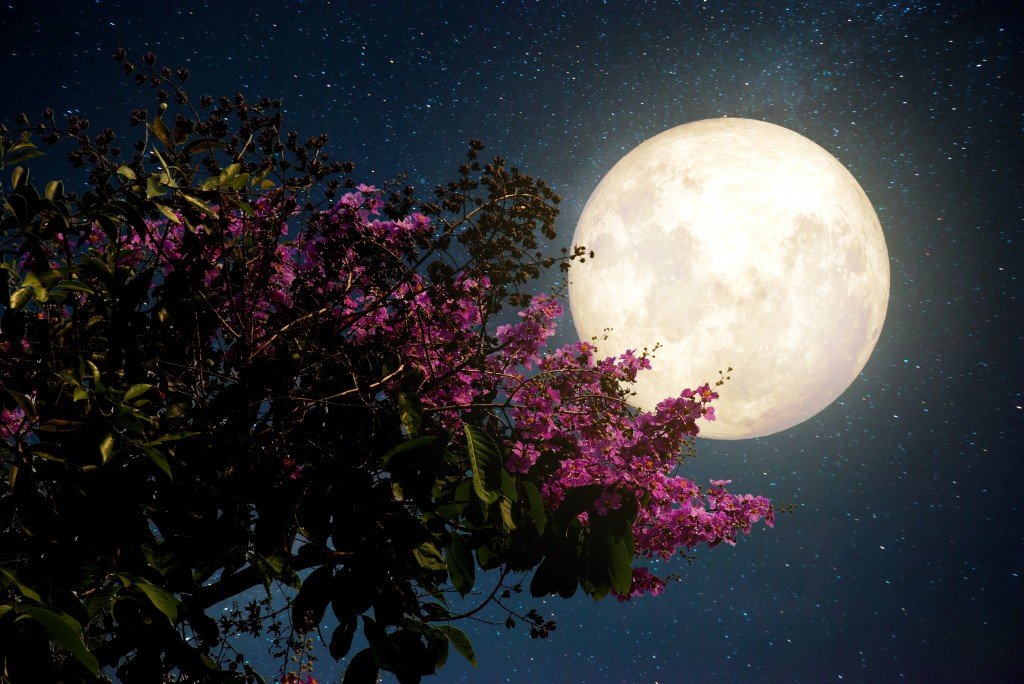Does a Full Moon Really Affect Behavior?

It’s 1:00 a.m. and you’re inexplicably jolted awake. The room seems brighter than usual, and a screaming siren breaks the night air. The neighbor’s dog is barking wildly. With bleary eyes, you peek out the window to see the moon round and bright in the night sky. “Full moon again,” you grumble, and mutter your way back to bed, to dream of the stories you’ve heard about emergency rooms and police stations packed on full moon nights…
In the morning, you’ve woken with another great little anecdote about the perils of a full moon—and a bad morning mood to match that of the mythical werewolf. So does the full moon actually have an effect on how people and animals sleep, feel, and act?
Science and Society
Centuries of mythology point to the full moon as the time of monsters and madmen. Even the term “lunacy” is tied intimately to the moon (“lune” or “luna”). Nurses and police officers tell horror stories of full moon nights. But the science doesn’t necessarily back up the hype.
The Research
Copious numbers of recent studies cited by the University of Washington have conflicting results when it comes to “full moon fever”. Many show no correlation between action and moon phase at all. Several psychological studies actually show increases in suicides and mental/emotional hospital admissions during the new or first-quarter moon when the outer world mirrors a “dark-of-night” internal landscape—NOT at the full moon, when things are literally brighter.
One 2007 study reported at The Daily Galaxy did find an increase in pet injuries and emergency room viits during the full moon. The researchers who published that study suggested that the added light of the full moon might encourage pets (and some of their owners) to be out at night in increasing numbers, offering greater chances to wind up injured.
A Little Illumination…
So how can we “illuminate” this morass of conflicting information on full-moon madness?
It’s likely that the moon has little or no mystical effect on our actions and emotions. Rather, the extra light gives us a little more leeway to be up and about getting into mischief, or interrupts our sleep a little more readily with that added glow.
The results of the extra lunar illumination can influence everything from greater chances of injury to the perfect opportunity to perpetrate a crime… or grumpier, angrier moods due to interrupted sleep. Those minimal effects may be enough to show up in some studies, while remaining undetectable in others. It’s not the magic of the moon—just a little extra light.
… Or is it?
Author Bio: +Michelle Gordon is a sleep expert who researches and writes about sleep and health, and is an online publisher for the latex mattress specialist Latexmattress.org.


